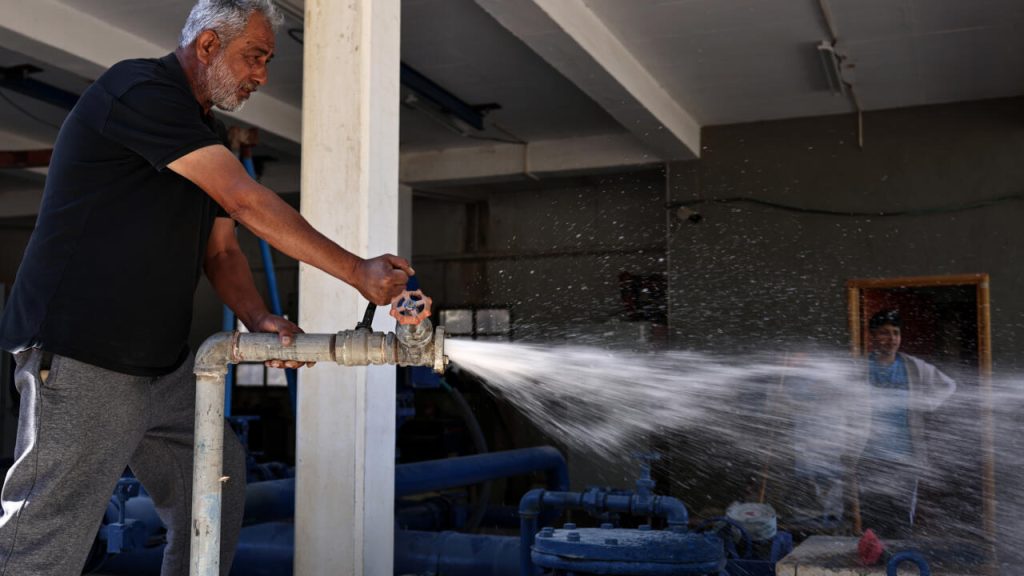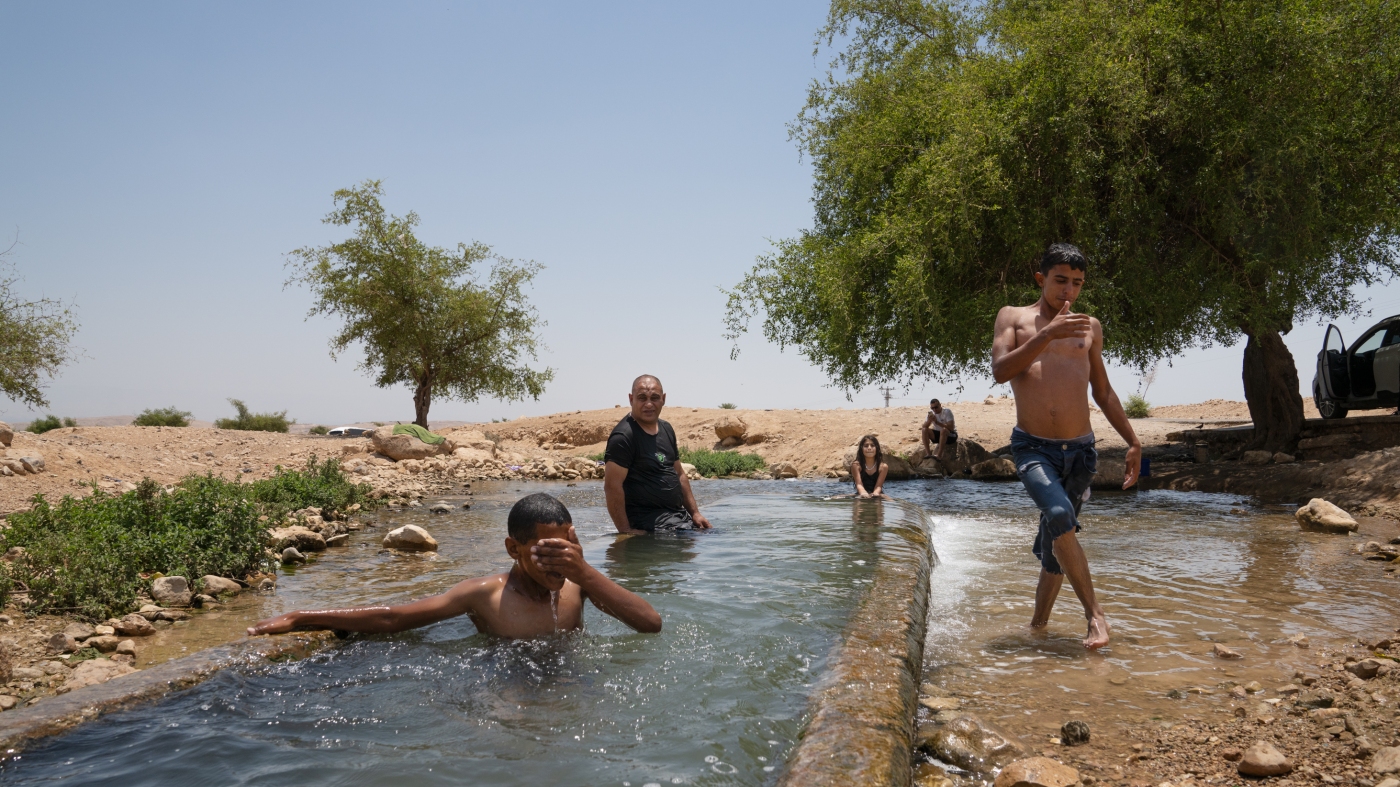Palestinian water operator Subhil Olayan stands guard over a vital lifeline, the Ein Samiyah spring, for over 100,000 Palestinians.
Recently, Israeli settlers attacked the wells, pumps, and pipelines he oversees, temporarily cutting off water to nearby villages.
Olayan stressed the severity of the situation, stating, “There is no life without water, of course.”
The Ein Samiyah spring is a crucial water source in the West Bank, a region already facing chronic water shortages.
The recent attack is one of several incidents where settlers are accused of damaging, diverting, or seizing control of Palestinian water infrastructure.
Olayan described how settlers first broke a pipeline, diverting water into the ground and halting supply to dependent villages.
While workers quickly repaired the damage, maintenance teams now fear venturing to the pumping station due to safety concerns.
Water as a Tool for Land Grabs Amidst Rising Violence
Since the start of the Gaza war, deadly settler attacks on Palestinians in the West Bank have become common.
Last week, a 20-year-old dual US citizen was killed in the nearby village of Sinjil, prompting the US ambassador to urge Israel to “aggressively investigate.”
Issa Qassis, chairman of the Jerusalem Water Undertaking, which manages the Ein Samiyah spring, views these attacks as a tactic for Israeli land grabs and annexation.
“When you restrict water supply in certain areas, people simply move where water is available,” he explained, adding that water is “the best and fastest way” to facilitate population displacement.
Several Israeli politicians, including Finance Minister Bezalel Smotrich, a settler himself, have openly supported annexing the West Bank, which Israel has occupied since 1967.
Smotrich stated in November that 2025 would be the year Israel applies its sovereignty over the Palestinian territory.
Qassis accused the Israeli government of supporting settler attacks, though the Israeli army claimed it was unaware of the pipeline damage and thus unable to prevent it.

Beyond Ein Samiyah, settlers in the Jordan Valley have reportedly taken control of the Al-Auja spring by diverting its water, and two other springs in the area have also been seized.
Chronic Shortages and Restricted Rights
In Dura al-Qaraa, a village relying on Ein Samiyah as a backup, residents worry about increasingly long droughts and Israel’s regulation of their water rights.
Rafeaa Qasim of the village council noted that planting has ceased for years due to decreased water levels and rainfall, leaving the land “basically abandoned.”
Qasim stated that while water shortages have persisted for three decades, residents are powerless to act. “We have no options; digging a well is not allowed,” despite local springs.
He cited a well project rejected by the UN and World Bank due to Israeli laws prohibiting drilling in Area C of the West Bank, which comprises over 60 per cent of the territory and is under full Israeli control.
A 2023 report by Israeli NGO B’Tselem highlighted stark disparities in water access in the West Bank: nearly all Israeli residents and settlers have daily running water, while only 36 per cent of West Bank Palestinians do.
Qasim fears for Dura al-Qaraa’s future, warning, “Each year, the water decreases and the crisis grows—it’s not getting better; it’s getting worse.”


 Trending
Trending 